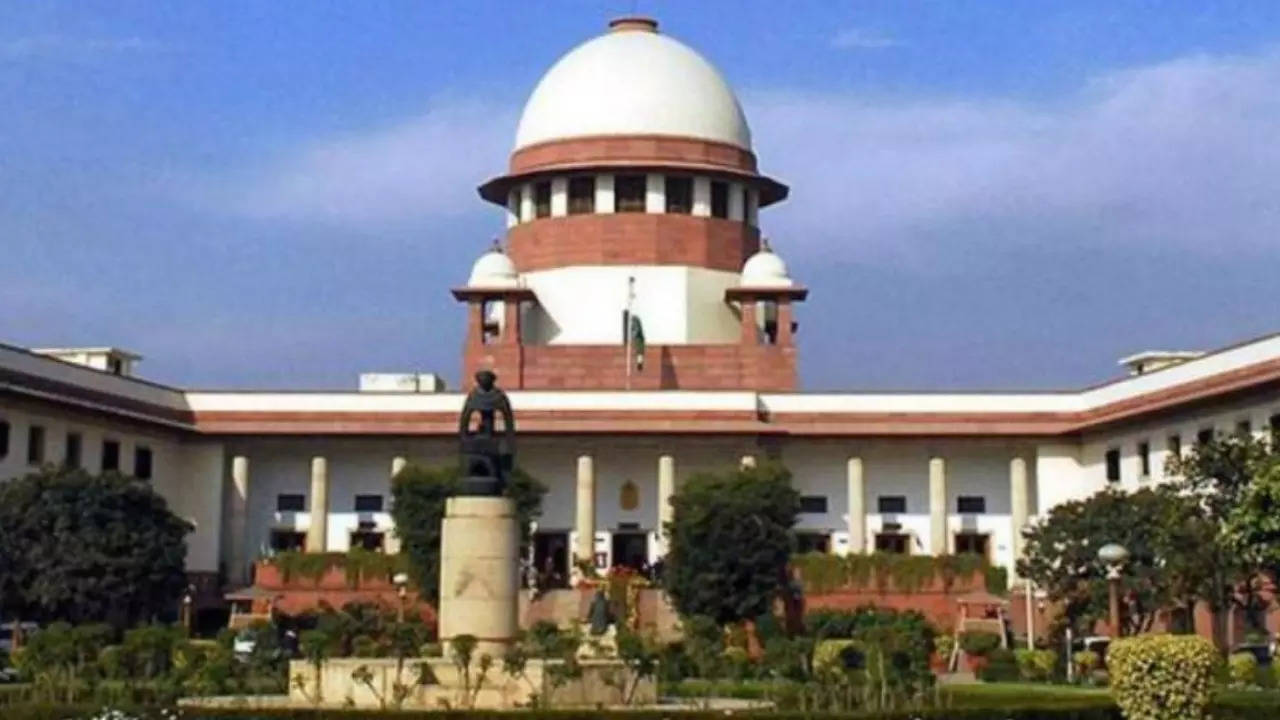Hold Elections in J&K By September 2024: Supreme Court | Highlights of SC Verdict on Article 370
Article 370 Verdict: The Supreme Court has ruled that the order scrapping J&K Special Status is constitutionally valid. The Centre in 2019 scrapped the special status and split the state into two Union Territories - Jammu and Kashmir and Ladakh.

Article 370 Verdict: The Supreme Court has ruled on whether the Scrapping of the Special Status to the state of Jammu and Kashmir are valid in terms of legality and constitutional procedures.
New Delhi: The Supreme Court pronounced the verdict on the constitutional validity of the Centre's move to scrap 'Article 370', a special status granted to the erstwhile state of Jammu and Kashmir. Supreme Court refused to rule on the validity of the Presidential rule imposed in Jammu and Kashmir in December 2018 since it was not specifically challenged by the petitioner, the Chief Justice of India said.
Chief Justice of India said Article 370 was a temporary provision. CJI DY Chandrachud read out the verdict. He said that Jammu and Kashmir held no internal sovereignty after accession to India and that there was no prima facie case that the President’s orders were malafide or extraneous exercise of power.
Justice Kaul recommended setting up a Truth and Reconciliation Commission to look into alleged violations of human rights by both state and non-state actors in J&K. It should be based on dialogue and not become a criminal court, he added - highlighting that old wounds must heal and as a nation - we must move on. Justice Kaul cited instances of such commissions having been set up in many countries of Latin America, Africa, and elsewhere after bouts of internal strife. The purpose of such bodies is to probe allegations of rights abuses and help restore peace between communities through the delivery of justice, Justice Kaul added.
The following are the pertinent points of the judgment being read out in the SC.
ARTICLE 370 WAS A TEMPORARY PROVISION MEANT FOR SMOOTHER TRANSITION AND ASSIMILATION: The CJI said that one must read into the historical context in which Article 370 was included. He said that Article 370 was a temporary provision, meant to serve the transitional purpose to provide for an interim arrangement, till the J&K Constituent Assembly could be formed and it could ratify the Indian Constitution. The other reason why it was deployed was also due to the war-like situation prevailing in the state that needed to be quelled, said the CJI.
NO SPECIAL STATUS FOR J&K: The CJI said that Article 370 was a temporary provision on a reading of the historical context in which it was included. It served the transitional purpose to provide for an interim arrangement, till the J&K Constituent Assembly could be formed and it could ratify the Indian Constitution. Second, it served a purpose in the war-like situation prevailing in the state, he adds.
RESTORE STATEHOOD, HOLD ELECTIONS BY SEPT 30, 2024: SC also said that the reorganization of the erstwhile state into Union Territories in 2019 was a temporary move. It has, however, also directed the Centre to restore statehood to J&K by September 30, 2024.
REORGANISATION OF UT: The SC bench upheld the reorganisation of Ladakh as UT, and the CJI said that in view of the Centre's submission that the UT status is temporary, the court doesn't find it necessary to determine if the reorganisation into UTs is valid.
NO ELEMENT OF SOVEREIGNTY IN J&K CONSTITUTION: The CJI said that the fact that J&K is an integral part of India is evidenced in Section 3 of the J&K Constitution itself, apart from Articles 1 and 370 of the Indian Constitution. The Chief Justice also highlighted that the Article 1 of the Indian Constitution says, “Indian, that is Bharat, shall be a Union of States” and that the Article 3 of the J&K Constitution reads: "The State of Jammu and Kashmir is and shall be an integral part of the Union of India." The state's Constitution also provides that this provision cannot be amended.
End of Article
Subscribe to our daily Newsletter!
Videos





04:45
'World Used Kashmir Against India': What EAM Said On J&K's Art 370| Page From Times Now Archive

02:59
Breaking News: SC Upholds Abrogation Of Article 370 | No Special Status For J&K | Latest Updates

04:35
NC, PDP, And BJP Reacts On Abrogation Of Article 370 | Will Centre Be Vindicated? | Latest News

02:42
Israel Hamas War | Netanyahu Says 'Hamas Is Surrendering' | What's Happening In Gaza? | World News

02:32
India’s Strong Response Over ‘Secret Memo’ on Nijjar Killing | India Vs Canada | Khalistani Group












